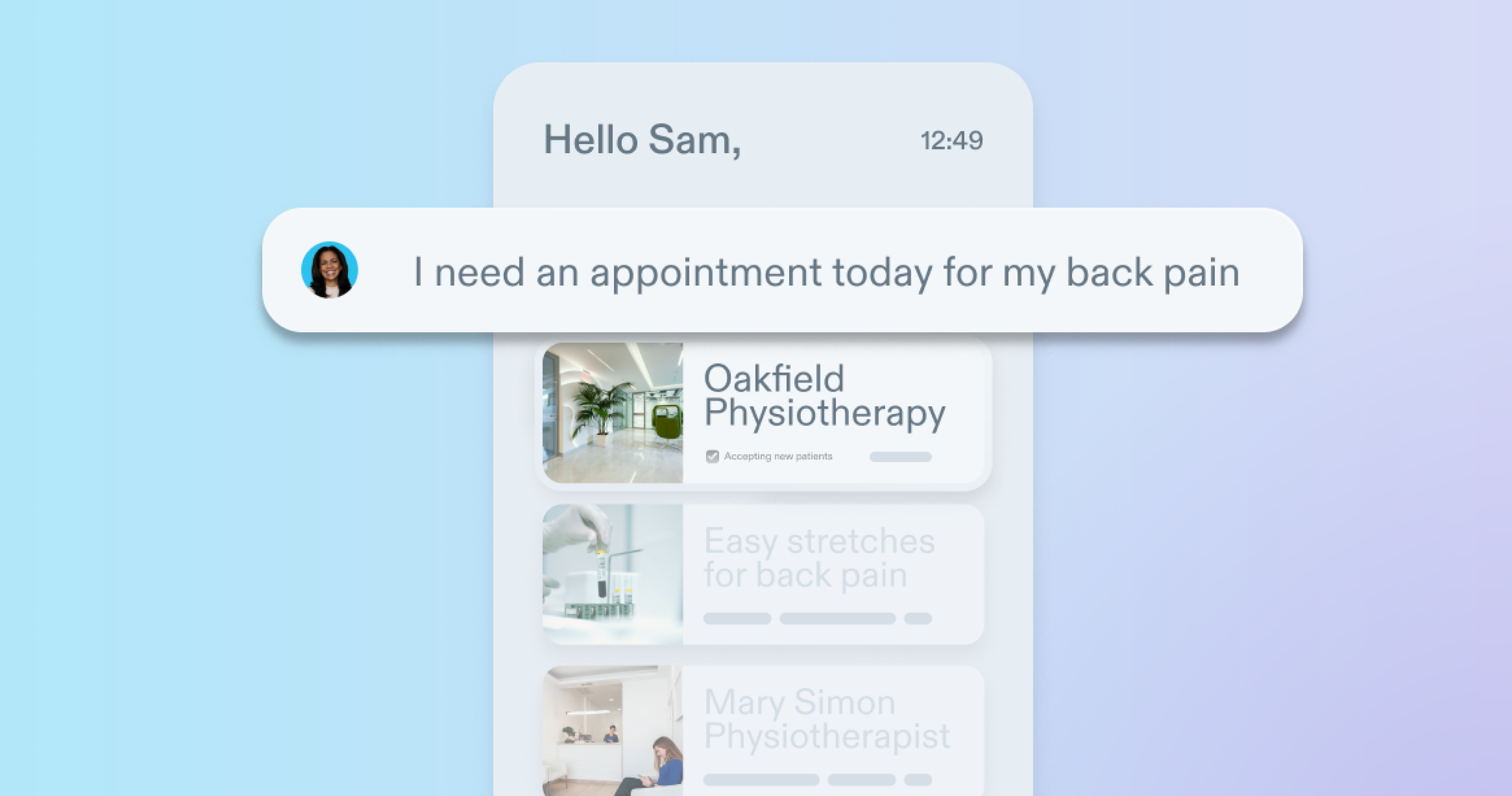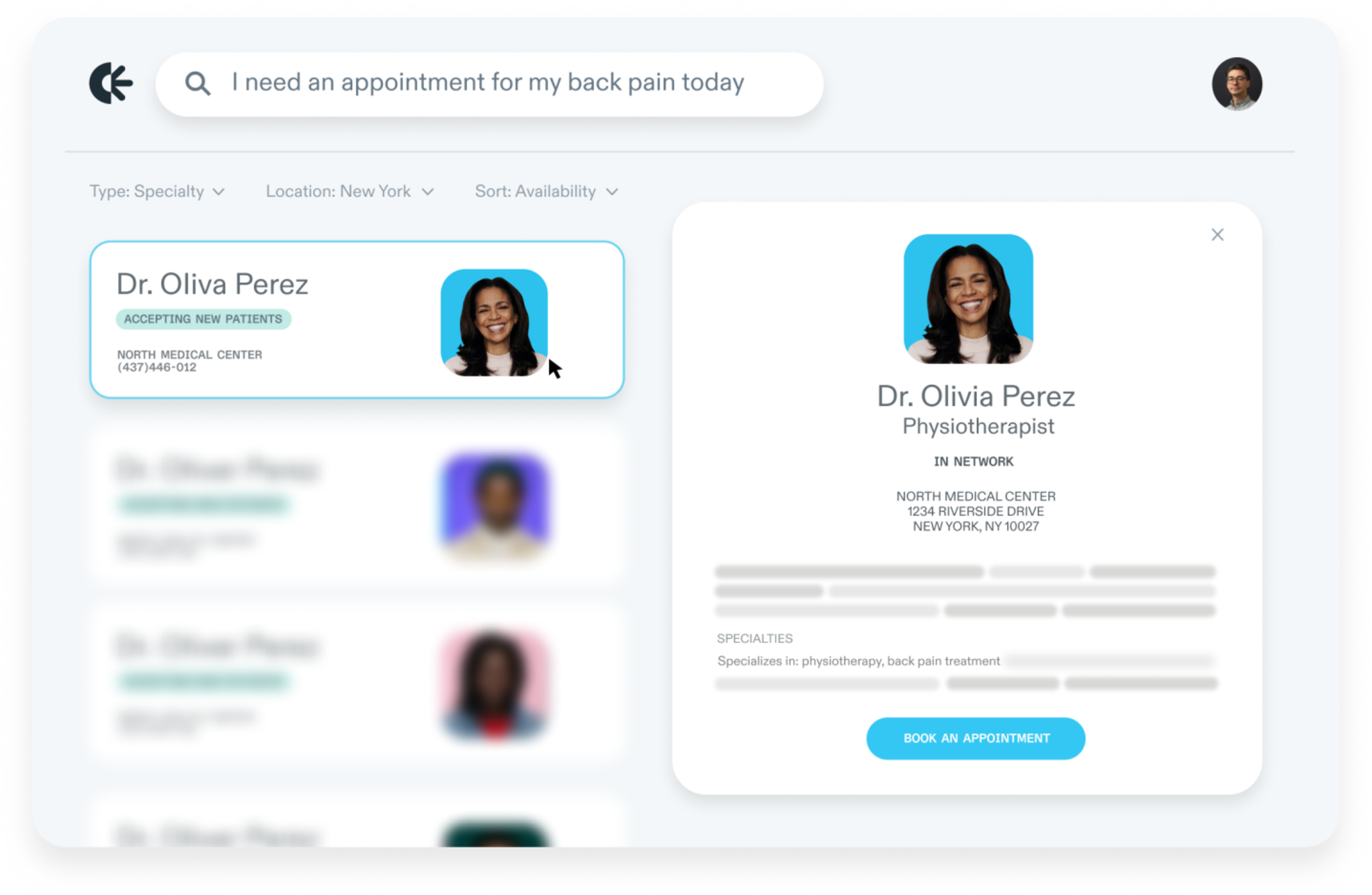How natural language input enhances health search




One of the core pillars of our health-grade approach is the importance of supporting natural language inputs and outputs. Whether a healthcare professional or a patient, when it comes to a user finding and accessing the information they require, being able to accurately interpret the input or query in a user's own ‘natural language’ has significant benefits to improving the speed to the right answer. It eliminates the worries about finding the 'perfect question'. Users can search in variations, polysemous terms, laypeople's language for medical conditions, or even cram multiple needs into a single search, and quickly get the right results needed for their health.
Using natural language reduces the time spent figuring out the right words to get an exact text match, and gets to a relevant answer. There's no need for additional consideration about choosing the 'right' word or specific term—natural variations in pluralities, tenses, or gender are automatically accounted for, as are localized or colloquial terms specific to a user group or location. This greatly reduces the time spent considering what keywords will get the best results and improves the confidence of completeness of the results all from a single, fast search.
In many languages, certain words or phrases may have multiple meanings in specific contexts.
For example, a bank can refer to the shores of a river or a financial institution. In health, a drop can refer to a measurement of fluid or a change in a test result. A more detrimental example is the word discharge - “The patient received a discharge after surgery” is quite the opposite of “The patient has a discharge from their wound after surgery”.
The ability to process multiple words or tokens to consider the specific context means the original intent of a query can be parsed, before the result-matching phase. Understanding the right concepts in a query ensures the most relevant results can be surfaced for the user.
It’s common in many professional environments to use specialized terms and concepts. Nowhere is that more prevalent than within health and scientific environments. In addition to the often complex and scientific nature of terminology, it’s also an area where an everyday ‘layperson’ will be expected to interact within this complex environment. As a user, any patient will need to interact with the systems and try to navigate information not to simply complete any old task - but rather to look after their own health and well-being.
Supporting natural language inputs from layperson, to professional, to specialist and returning the most relevant results across the board is essential within any health search experience.
The ability to combine refinement or filtering and multiple query stages into a single workflow greatly improves navigation to complete the task at hand.
For example, users can refine their search for more accurate results in natural language. A patient might start by searching “doctors in Montreal.” From there, they can refine their query using natural language, such as “only family doctors accepting new patients” or “doctors with weekend availability.”
Natural language queries can also be used to combine multiple search workflows across different data types or even silos. For instance, users could directly search for "doctors in Montreal accepting new patients with available booking today." This creates a more efficient and precise search experience.

Another great example is when a user combines two situations into one search, like " I have a headache and blurry vision." While each symptom on its own might return broad results like general information on headache or eye strain, combining them provides more precise results, helping the user find relevant information faster, rather than sorting through generic results.
Helping users find and access the health information they need in their own natural language provides significant value and enhances their overall experience. By adding support for natural language queries, users can reduce their cognitive load, speed up the time to the correct answer, and feel more confident in the completeness of results from a single, simple query in their own descriptive language.
In health, where the level of user terminology varies widely, and time to action can have a significant impact on providers and patients alike, the ability to accurately interpret natural language queries and rapidly surface the most relevant information is essential.